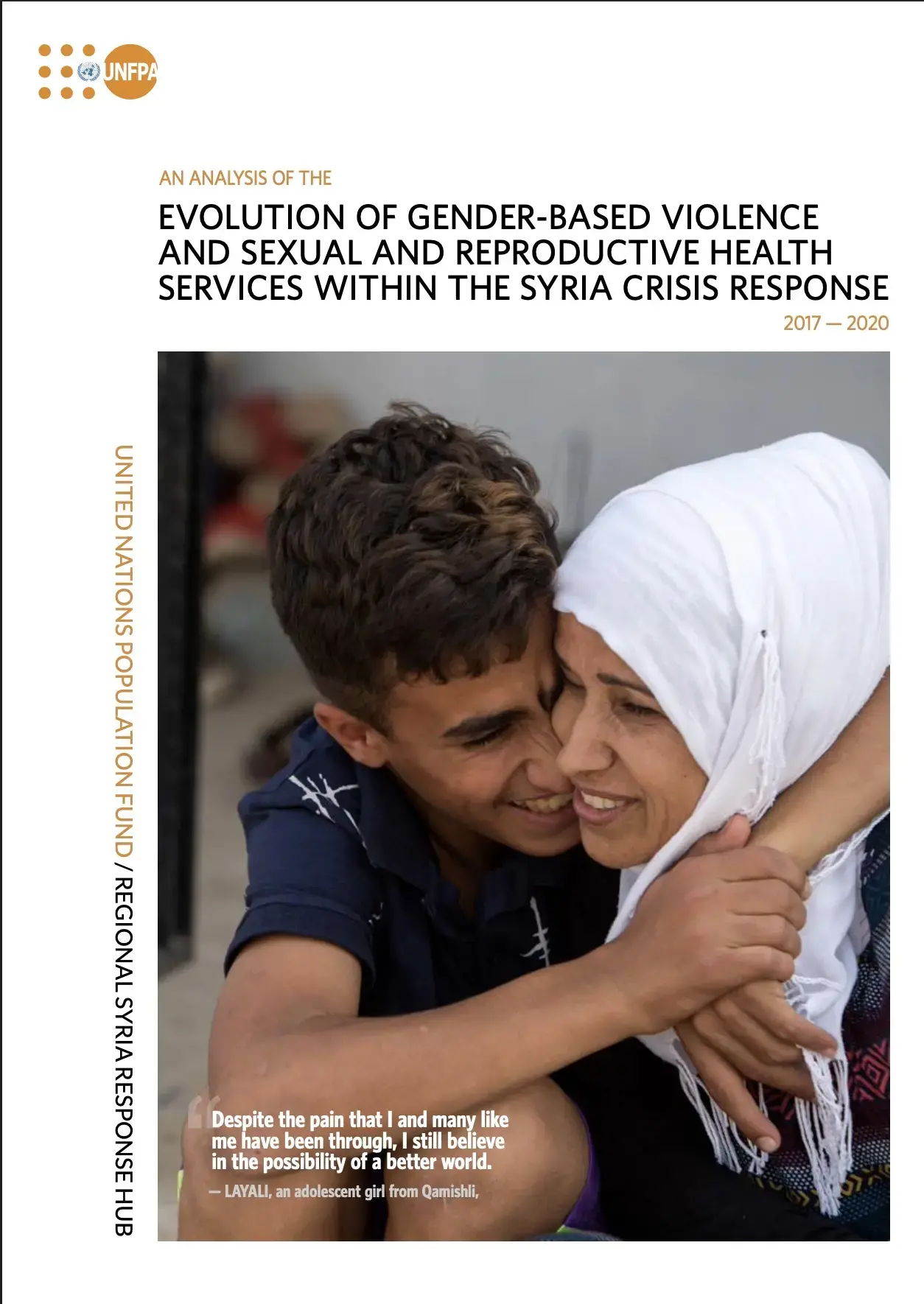The conflict in Syria has generated one of the most severe and protracted humanitarian crises ever faced. Now into its 10th year, over 5.5 million refugees are still registered1 in five neighbouring countries and over six million people are currently displaced within Syria. This represents the largest displacement of population in the world.
UNFPA is ensuring the overall coordination and harmonisation of the Syria Crisis Response through the UNFPA Regional Syria Crisis Response Hub (the Hub) of the Arab States Regional Office (ASRO) based in Amman, Jordan. In the context of the crisis response, the UNFPA Regional Priorities are aligned with the Strategic Plan and reflected in the Protection and Health Chapters of the Regional Refugee and Resilience Plan (3RP), the inter-agency plan designed to coordinate and support the efforts of the five refugee hosting countries, as well as in the Syria Humanitarian Response Plan (HRP) that covers Syria and cross-border operations into Syria. The relevant overall objectives are the following:
To prevent and respond to gender-based violence;
Strengthening Reproductive Health services in impacted areas.
In order to gain a better understand and capture what has worked in the gender-based violence and sexual and reproductive health responses in the region, the UNFPA the Regional Syria Response Hub has commissioned an analysis of the evolution of the gender-based violence and sexual and reproductive health services over the past three years (2017-2020), whose methodology, main findings, recommendations, and points of advocacy are the object of this report. This report captures the main finding of this analysis and highlights interesting responses and initiatives. Based on these a set of programme and policy recommendations are made to inform future gender-based violence and sexual and reproductive health programmes.


